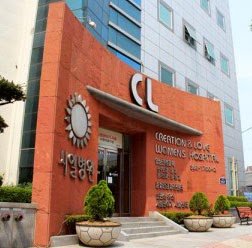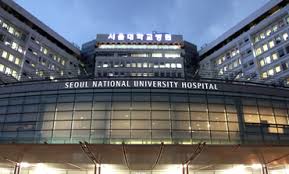SNUH has received sales approval from the Ministry of Food and Drug Safety for its pulmonary artery artificial heart valve.
The SNUH has been researching the device along with TaeWoong Medical since 2014.
The research team, led by Professors Kim Ki-bum, Kim Yong-jin and Im Heung-gook at the hospital, began the development of artificial heart valves using pig and bovine adrenal glands with the support from the long-term biosimilar project team funded by the Ministry of Health and Welfare. The team has also developed a stent that does not require patients to undergo an open chest surgery.
They completed animal research and conducted a clinical trial by transplanting the artificial heart valve on 10 patients and followed up on them for six months to prove the device’s effectiveness and safety in 2016.
As a result, the patient did not require any immunosuppressant as the valve showed almost no immune rejection, which is the biggest problem of xenotransplantation.
There are currently inquiries about the commercialization of the product not only from Asian countries such as Japan, Taiwan, and Hong Kong but Europe,” the hospital said. “The research team will meet with 11 pediatric cardiac centers in six European countries and will begin clinical trials early next year.”
The heart has four valves that control blood circulation. The most common valve disease is valve stenosis of the aorta. However, TAVI, an aorta artificial heart valve, developed by advanced countries such as the U.S. has already secured most of the market share.
The hospital expects to have similar benefits, as the pulmonary artery artificial heart valve developed by SNUH research team is the first commercialized product of its kind in the world. Until now, Korea, the United States and China have been fiercely competing to develop the product.
Also, similar products being developed in foreign countries are expensive with prices ranging from 30 million to 40 million won ($26,000-35,000). Patients also have to undergo an open chest surgery during their first operation and replace the valve every 10 years.
The valve and stent developed by SNUH do not require open chest surgery and has a firm stent that can match the size of the patient’s pulmonary artery. The hospital expects that such benefits can lower the financial burden on patients.
Additional clinical trials are underway at several hospitals in Korea,” Professor Kim Ki-bum said. “If the hospital manages to receive a European CE certification after clinical trials in Europe, it will contribute to the improvement of patient's quality of life and globalization of Korean medical technology.”
|
Sunday, December 23, 2018
Subscribe to:
Post Comments (Atom)
CLWH Reproductive Health Clinic in Korea
RUSSIAN CLWH Reproductive Health Clinic in Korea (SIEL) (KOREA, KVANJU) Cost for Ectracorporeal Fertilization (IVF) at Clinic CEL...

-
RUSSIAN CLWH Reproductive Health Clinic in Korea (SIEL) (KOREA, KVANJU) Cost for Ectracorporeal Fertilization (IVF) at Clinic CEL...
-
RUSSIAN Intravenous injection therapy. Chronic Fatigue Clinic (Intravenous Injection...
-
RUSSIAN What is a PET-CT scan? PET scanner scan - simultaneous scanning shows the presence of tumors and metastases, their e...






No comments:
Post a Comment